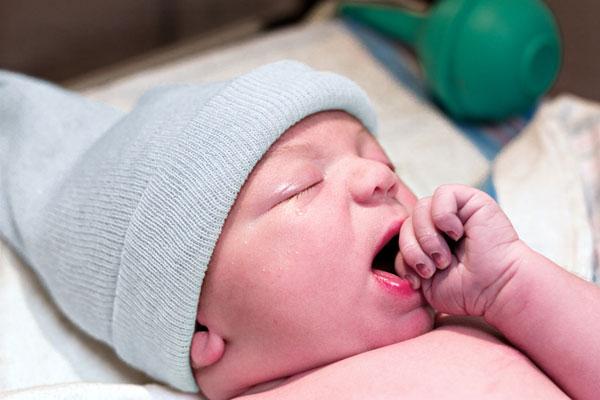Tiniest Babies In US Have Thrived, Researchers Find

Two babies with the lowest recorded birth weights in the United States have thrived as they've grown older, researchers report.
Researchers from Loyola University Medical Center followed the progress of two girls, identified as Madeline, who weighed 9.9 ounces at birth, and Rumaisa, who weighed 9.2 ounces at birth. When researchers checked the girls' progress at 20 years old and 5 years old respectively, the once-tiny babies were healthy, though they were both small for their age.
The case reports are published today (Dec. 12) in the journal Pediatrics.
The findings reinforce other research that shows that time in the womb is more important for healthy babies than birth weight, said study co-author Dr. Jonathan Muraskas, a professor of pediatrics at Loyola University Medical Center.
"Gestational age, not birth weight, should guide doctors in deciding who is viable," Muraskas said.
Still, extremely premature or extremely low birth weight babies often develop health problems. Parents should be cautioned that not all preemies turn out as well as Madeline and Rumaisa, Muraskas said.
Tiny babies
Get the world’s most fascinating discoveries delivered straight to your inbox.
Madeline was born in 1989 after nearly 27 weeks in the womb and weighed roughly 9.9 ounces, or 0.62 pounds.
An average baby weighs about 8 pounds and stays in the womb about 40 weeks (though babies are considered to be full-term, and not premature, after 37 weeks).
Madeline's mother suffered from severe preeclampsia, a condition during pregnancy in which the mother experiences high blood pressure, among other symptoms.
After a cesarean delivery, doctors treated Madeline for a number of conditions and placed her on mechanical ventilation for 65 days. She was discharged from the hospital after 122 days.
At the time of the report, Madeline was an honor student in her senior year in college, with few health problems. She's still small, weighing only about 70 pounds and standing about 4.5 feet tall.
Rumaisa was born in 2004 after nearly 26 weeks, and weighed 9.2 ounces, or about 0.57 pounds. Researchers say she has the lowest documented birth weight in the world.
Rumaisa's mother, who was carrying twins, had preeclampsia in addition to discordancy, a condition in which one twin is significantly larger than the other.
After a cesarean delivery, doctors placed Rumaisa on mechanical respirator for 50 days. She was discharged from the hospital after 142 days.
While Rumaisa is still small for her age, she's caught up to the tenth percentile of her age group, researchers say. At age five, she weighed about 35 pounds and was about 3.3 feet tall, and attended a traditional kindergarten.
When is a baby too small to survive?
Madeline and Rumaisa illustrate the conundrum physicians face as neonatal science continues to progress, Muraskas said. When is a baby too premature to save?
Both Madeline and Rumaisa received antenatal steroids, which are given to a mother with a high chance of delivering prematurely. The drugs cross the placenta and help the baby's brain and lungs develop.
Even with such advances, a baby born at 23 weeks gestation has a 10 to 20 percent chance of surviving, and has an 80 to 90 percent chance of a major health problem, Muraskas said. But by 27 weeks, a baby has a 90 percent chance of survival and only a 5 percent chance of a debilitating handicap.
"I don't think anybody in the U.S. will resuscitate a baby at 22 weeks," Muraskas said. "At 25 weeks, it's a no-brainer. The survival rate is over 75 … percent."
It's the gray area in between where physicians have to use their judgment. "I use common sense," Muraskas said. "There's no way I would keep a baby alive that is going to be blind, deaf, in a wheelchair and who is not going to know mama and papa."
It's important to acknowledge that some babies considered too small to survive do beat the odds, said Dr. Jonathan Fanaroff, an associate professor of pediatrics at Rainbow Babies & Children's Hospital.
But it's also important not to encourage unrealistic expectations in parents, he said. "We always have to be careful," Fanaroff said. "Sometimes they don't survive, even though we do everything we can."
"We need to be up front with them about their particular situation," he continued. "For too long, we've treated classes of babies. Every baby is an individual circumstance. Personalization is important, and so is letting the family have a voice."
Pass it on: The two tiniest babies ever born in the United States have stayed healthy as they've grown older, indicating that that time in the womb is more important than birth weight. However, not all premature babies thrive.
This story was provided by MyHealthNewsDaily , a sister site to LiveScience. Follow MyHealthNewsDaily on Twitter @MyHealth_MHND. Find us on Facebook.


